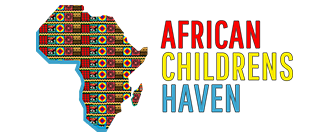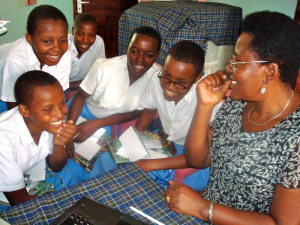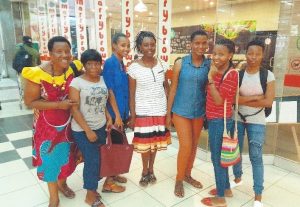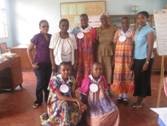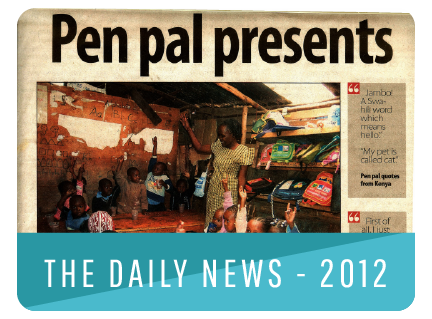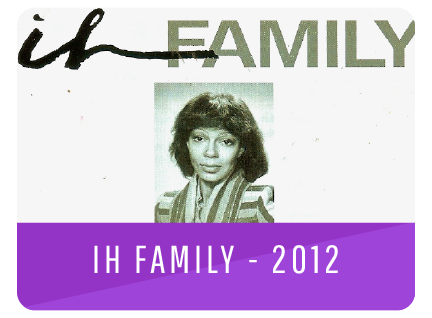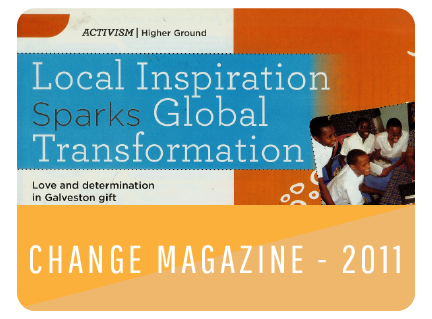Galveston, Texas, May 27, 2022 Female Genital Mutilation is an ancient practice that many local people believe prepares a girl for marriage. The cutting, which includes the removal of the clitoris, usually takes place before puberty and often on girls as young as four years of age. Although widespread across Africa and the Middle East, genital cutting is illegal in Kenya and is gradually dying out as the country modernizes. “Education is key to ensuring that this horrific practice continues its decline,” says educator Linda Ercole-Musso. She notes that by combining forces, the two clubs recently raised $6,000, enough to pay school fees for ten girls, including three university students.” “We believe education is the best way to ensure that the practice dies out,” she says. Ercole-Musso chairs the board of African Childrens Haven, a Galveston non-profit that supports education projects in Ethiopia, Tanzania and Kenya. “It’s been a win-win for the girls and for our two clubs,” says local businessman Don Nurdin who spearheaded the effort to help the Rotary and Kiwanis join forces. “We tend to operate separately,” says Nurdin, “but it’s clear that by combining our resources we can expand the impact of our efforts and help a great many more children.” Both clubs have worked with African Childrens Haven in the past. In 2015, for example, Galveston Rotary provided the funds to establish one of the first computer labs at a community school in the slums of Nairobi, Kenya. “With help from Galveston Computer Solutions and Galveston.com, we were able to get the lab up and running and since then we’ve seen the children gain computer literacy skills to the point where many have qualified academically for jobs in information technology,” adds John Eanes. Eanes, a member of the African Childrens Haven board and a long-time Kiwanian, is the owner of Galveston Automotive Professionals. “I’ve seen the work on the ground,” Eanes says. “Our African partners do a great job with minimal resources and they work hard make sure that every dollar donated is well spent. Known as Mission With A Vision, the organization is located just outside the Maasai Mara game reserve, an area with large numbers of ethnic Maasai, an tribal group that continues to practice genital cutting despite a national ban on the practice. The Mission has sponsored the education of more than 1,200 girls over the years and places a priority on girl’s education and job training. “We’ve worked with the Mission for over a decade and they continue to amaze us with their dedication to the girls and their efforts to help them become financially independent,” adds Ercole-Musso. “They not only educate the girls, but they work hard to keep them safe as girls who have fled their villages to avoid cutting are often the targets of violence and revenge by male family members.” Increasingly, however, many of the girls have reconciled with their families and can return to their families for visits. The reconciliation process is a delicate one that can put Mission staff at risk, but has numerous benefits for both the girls and their families. Thus far, more than 1,000 girls have reunited in some manner with their families. “When the girls graduate from school and begin to earn money that they can use to help their families, people begin to understand that there are benefits to making sure that girls are educated and have the skills needed to make their way in the world,” Ercole-Musso notes. “The process is time-consuming one and requires patience, but even now we’re beginning to see a payoff. A majority of the girls hope to reunite with their mothers and siblings and possibly rejoin life within their communities. We’ve also come to learn that girls who have completed their studies and are employed can serve as positive examples to male family members and are thought to be part of the process leading to the gradual elimination of this practice,” Ercole-Musso says.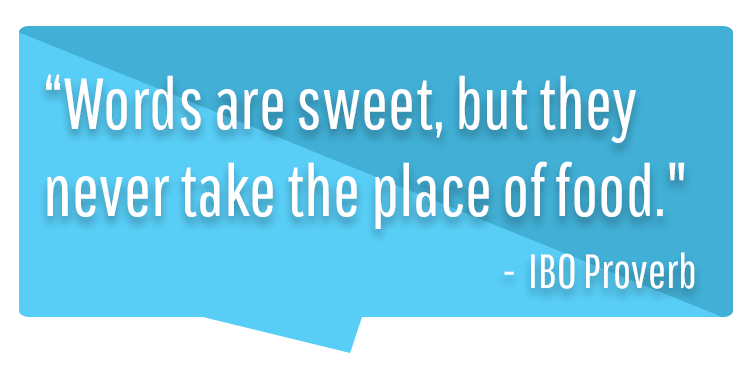
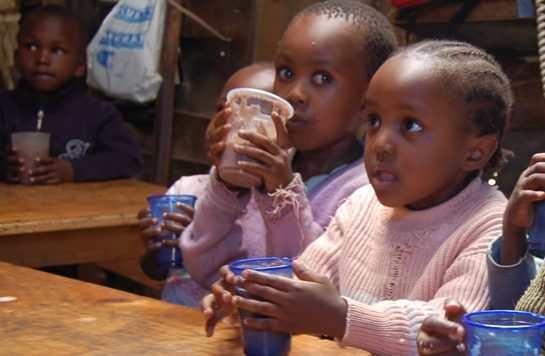
Galveston Rotary and Kiwanis Join Forces to Aid Kenyan Girls Fleeing Genital Mutilation
 Two of Galveston’s most prominent social services clubs – Kiwanis and Rotary – are working together to provide scholarships to Kenyan girls who have fled their villages to avoid genital cutting and childhood marriage.
Two of Galveston’s most prominent social services clubs – Kiwanis and Rotary – are working together to provide scholarships to Kenyan girls who have fled their villages to avoid genital cutting and childhood marriage.
In 2019, Eanes served as a technical adviser on a project that provided a tractor to the African non-profit that currently oversees the girl’s education. The tractor, which was purchased with a grant from the Moody Permanent Endowment Fund, has put that organization on the road to financial self-sufficiency, Eanes notes.
Galveston, Texas, August 24, 2018 Five orphaned girls who received scholarships from African Childrens Haven have completed their college and university studies and are entering the professional workforce. That’s a significant achievement for any African woman, let alone an orphan who’s struggled against long odds to succeed. African Childrens Haven supported the girls as part of its Carole Cole Scholarship program in Tanzania. Cole, an actress well-known for her work in movies, television and the arts, held strong views on child welfare issues and the well-being of African children and culture. She was the adopted daughter of the late Nat King Cole and the sister of singer Natalie Cole. The new graduates are Evarista Nyoni, Mariana Ndunguru, Agnes Hamza, Maria Felix, Agnes Machum. Mariana and Maria graduated from university with Bachelor degrees in education, a tribute to their mentor, Dr. Aichi Kitalyi, one of Tanzania’s leading agricultural researchers and a member the African Childrens Haven board. Maria majored in math and Mariana in physics and chemistry. Joining them are Evarista Nyoni and Agnes Machumu who completed their studies in the medical field and are part of a cadre of young women providing health services to the poor. A fifth graduate, Agnes Hamza, finished her course this past February with a diploma in financial management and is now pursuing a career in banking. Each of these talented young women plan to continue studying towards advanced degrees and African Childrens Haven will be there to aid them in their journey. Meanwhile, the organization continues to support four remaining Carole Cole scholars as they finalize their studies over the next 18 months.Five Orphan Girls Graduate and Enter the Job Market
Galveston, Texas, September 15, 2017 The provision of a tractor to a safehouse project that protects Kenyan girls and young women fleeing ritualized genital cutting is expected to greatly increase the productivity of the project’s agricultural program and put it on the road to financial self-sufficiency. Funding for the purchase of the tractor, $68,000, was recently provided by the Galveston, Texas-based Permanent Endowment Fund of the Moody Memorial First United Methodist Church. Over the past decade, more 1,100 teenage Kenyan girls and young women have found shelter from ritualized genital cutting and childhood marriage thanks to the work of a small nonprofit known as Mission With A Vision and its US partner, African Childrens Haven. Although illegal, female genital mutilation (FGM) is still widely practiced in Kenya by the Masai ethnic group, a nomadic tribe known for their skill as hunters and herders. Most often, the cutting is done by family members in unsafe conditions that leave the victim in great pain and often results in injuries that leave her incontinent or unable to bear children. Such women usually live as outcasts on the periphery of their villages and are shunned by their neighbors and kin. Founded in 1997, the Mission is recognized in Kenya as one of the most effective projects of its kind as it not only protects girls and young women, but because it is increasingly self-sufficient, providing much of its own food and funding from its nine-acre farm and its poultry and fish farming enterprises. The purchase of a tractor is expected to result in a significant expansion of the land that the Mission farms and provide a source of employment for the Mission’s clients. Earlier this week two girls received scholarships from African Childrens Haven to attend a 6-month heavy equipment operating course. They are believed to be the first two women from the Massai ethnic group to receive such training. The tractor is expected to be available in early November and will be used to prepare the Mission’s farmland for planting before the end of 2017 Tractor Project Will Benefit Kenya Girls Fleeing Genital Cutting and Childhood Marriage
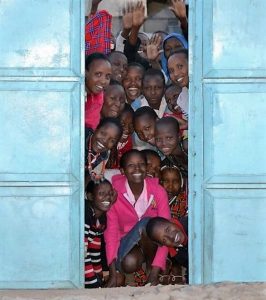
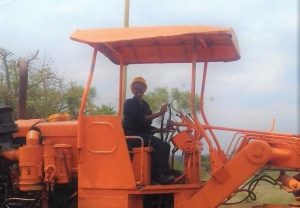
Nairobi, Kenya, May 25, 2017 African schools, especially those in poor districts, are hard pressed to include art in their curriculum. That’s beginning to change, however, for Kenyan children participating in the “Draw Your Dreams” project. Inspired and funded by artist Dinesh Doshi, the project, now in its first few months, has provided art supplies to nearly 1,000 students. The project is organized under the umbrella of African Childrens Haven in collaboration with the Watu Kwa Watu Charitable Trust. The initiative currently benefits eight Kenyan schools and social service organizations. Doshi, the founder of the Draw Your Dreams project, was born and spent the first 12 years of his life in Sudan. He received his secondary education in India. Trained as an architect he left for the United States in 1974 and was awarded a m “Educators know that teaching art at the primary school level helps children develop their motor skills, promotes language development and strengthens decision making,” Doshi says. He currently lives in New York where he continues to pursue his passion for painting and for helping kids express themselves through art.Draw Your Dreams Encourages African Kids to Think Big
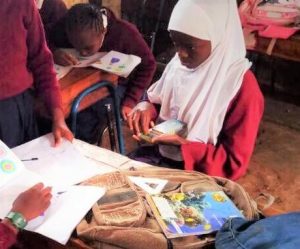 The children are encouraged to literally “draw their dreams” and envision a day in the future when they’ll become teachers, police officers, airline pilots and lawyers. One of the children even looks forward to serving as President of Kenya.
The children are encouraged to literally “draw their dreams” and envision a day in the future when they’ll become teachers, police officers, airline pilots and lawyers. One of the children even looks forward to serving as President of Kenya.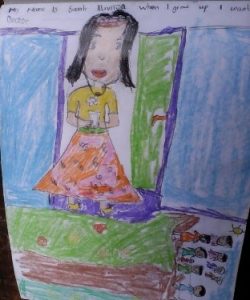 aster’s degree from the Pratt Institute. He subsequently established himself as a successful architect and expressionist painter with a wide following in the United States and abroad.
aster’s degree from the Pratt Institute. He subsequently established himself as a successful architect and expressionist painter with a wide following in the United States and abroad.
Galveston, Texas, November 21, 2016 A fund raiser organized by The Body Space Yoga studio in Galveston recently raised more than $500 to pay the school fees of a Kenyan girl fleeing female genital cutting and childhood marriage. The scholarship will be awarded through African Childrens Haven, a non-profit based in Galveston, Texas and its partner agency in Kenya, Mission With A Vision. According to Linda Ercole-Musso, who chairs the African Childrens Haven board, the funds will be used to pay school fees at a Kenya boarding high school where the recipient will be safe and receive the education she needs to build for her future. In much of Africa, girls who escape genital cutting or refuse to marry often face retribution from family members. Ercole-Musso extended a special thank you Courtney Walker and Mercedes Pang for teaching and organizing the event and to all those who attended and contributed to the November 18th fund fundraiser. Participants: Sandra Byzcek, Rachel Dragony, Maggie Fuller, Sharon Gillins, Tara Head, Cordula Hundesliacen, Courtney Murray, Ana Posada, Cheri Ray, Sabrina Vollmer, Nan Wilson and Debbie Wojcik.Yoga Fund Raiser Helps African Kids
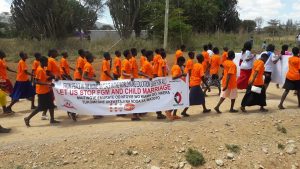
Galveston, Texas, May 15, 2016 The lab, which will be equipped with a dozen refurbished computers and locally-made computer work stations, will begin operations in early September with 159 students. The children, both girls and boys in about equal numbers, will range in age from 10 to 19. The school’s Head Mistress noted that none of the children has ever used a computer or accessed the internet. The students will receive instruction from two professionally-trained, certified teachers and will attend classes twice weekly. Within 18 months, each high school-age student will be eligible for testing in computer proficiency as part of his or her national examinations. For younger students, the project will focus on computer basics and the use of software programs such as MS Word. News of the program has been warmly received by both students and parents who understand that the skills to be taught will prepare the children for the digital economy, university studies and for advancement in Kenya’s labor market. The project will also receive support from two expatriate advisors from the Watu Kwa Watu Charitable Trust.Starkid Computer Education Project
 The Rotary Club of Galveston has awarded a $1,500 grant to African Childrens Haven to establish a computer education laboratory at the Starkid School and Rescue Centre in the Githogoro slum district of Nairobi, Kenya.
The Rotary Club of Galveston has awarded a $1,500 grant to African Childrens Haven to establish a computer education laboratory at the Starkid School and Rescue Centre in the Githogoro slum district of Nairobi, Kenya.
Galveston, Texas, January 10, 2015 Robert L. K. Lynch was recently elected to the board of African Childrens Haven, a Galveston non-profit that supports at-risk children in Eastern and Southern Africa. “Robert and his family have been long-time supporters of our work and we welcome his willingness to play a more hands-on role,” added Linda Ercole-Musso, the organization’s founder and board chair. “African Childrens Haven helps hundreds of poor children, especially those who have lost their parents to AIDS,” Ercole-Musso said. The organization also provides safe haven for girls seeking to escape childhood marriage, genital cutting and the sex and drug trades. Lynch is well-known as a community and business leader and has served on numerous Galveston boards and commissions, including the city’s Park Board, the Galveston Historical Foundation and the Galveston Housing Authority. He was elected three times to the City Council. An avid supporter of the arts, Lynch played a leading role in the restoration of the tall ship Elissa and the restoration of numerous buildings along the Strand. He is a past President of the Galveston Grand Opera and currently serves as an advisory member of board of the Frost Bank (Galveston) and as President of the Harris and Eliza Kempner Fund. “We are truly excited about Robert joining us at African Childrens Haven,” said Ed Sulzberger, the organization’s Executive Director. Sulzberger noted that in addition to his duties as a board member, Lynch will also serve as the organization’s Treasurer. “We are in a period of growth,” said Sulzberger, “and we look forward to Robert sharing with us his experience and expertise in the non-profit world.” African Childrens Haven was founded in Galveston in 2006 and receives support from a variety of local citizens and businesses. The organization provides educational scholarships for deserving students and sponsors projects that enhance education in urban slums.Robert Lynch Joins African Childrens Haven Board
 “African Childrens Haven is a great organization that helps vulnerable kids lead healthier, more productive lives,’ said Lynch. “I’ve followed their work for some years now and have witnessed the effectiveness of their programs that help AIDS orphans and children living in poverty.”
“African Childrens Haven is a great organization that helps vulnerable kids lead healthier, more productive lives,’ said Lynch. “I’ve followed their work for some years now and have witnessed the effectiveness of their programs that help AIDS orphans and children living in poverty.”
February 13, 2014 A scholarship fund that will send African students to secondary school was recently established in memory of Lousiville’s Dorothy Speier. The fund will finance the education of top students from impoverished areas in East Africa. The first students to receive the “Dorothy B. Speier Scholarship for African Children” began their studies in early February. The students, Henry Odanga and Joyce Owila, are both graduates of the St. Philips Primary School located in the Mathare slum in Nairobi, Kenya. Dorothy Speier was a native of Louisville, a retired registered nurse, a nursing supervisor at the Jewish Hospital from 1941-44 and a former co-owner of Speier Hardware. She died on November 26 at the age of 95. “Dorothy had a huge heart,” said her cousin Ed Sulzberger, Executive Director of African Childrens Haven, the organization that established the scholarship program. “ I can’t think of a better way to honor her memory than by making sure that deserving kids have the opportunity to receive an education. Sulzberger and his wife, Linda Ercole-Musso are co-founders of African Childrens Haven, a non-profit that supports needy children across Eastern and Southern Africa “We’ve supported primary education at the St. Philips School for the past four years, and have been planning to make funds available so that some of their best students can move on to secondary school,” said Ercole-Musso. “It seemed only fitting that we name the program in Dorothy’s memory.” Primary education in Kenya is available to all children, though many deserving students are unable to attend and only a handful of graduates move on to secondary school. It costs more than $750 per year to send a student to secondary school in Kenya, an amount that far exceeds to ability of most families to pay. Per capita income in Kenya is approximately $850 per year. Incomes in slum areas, however, frequently falls far below that level. “We’re starting with two top students,” added Sulzberger, ‘but we intend to expand the project in 2015 as we gain experience.” The project will be overseen both by Kenyan educators and representatives from the German community in Nairobi. “I think mom would’ve been proud to know that she is being honored in this way,” said her son Ron Speier. “She loved kids and she placed a premium on education, especially for kids in need.”Scholarship Fund for African Children Honors Memory of Louisville, Kentucky Resident
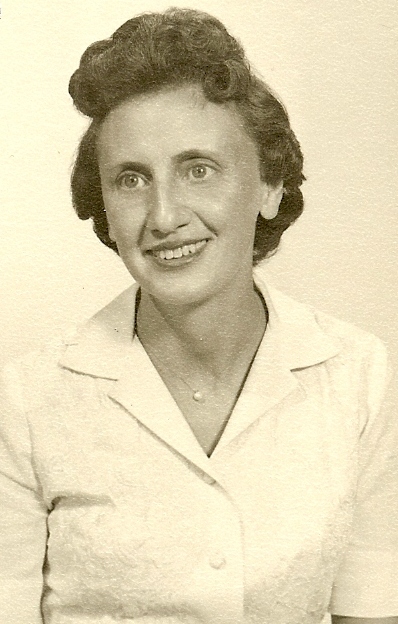
August 30, 2012 The Board of Trustees of African Childrens Haven is pleased to announce the appointment of Katherine Tate-Bradish as its first associate expert in the field of sex education and HIV prevention. Tate-Bradish will serve as project leader of a new initiative to train large numbers of African sex educators in rural areas and provide the means to sustain their work through private enterprise. An American, Tate-Bradish has many years of experience as an educator and advocate for rural women and children. In 2004, she began developing a sex education curriculum that is widely taught in Kenya and has found favor among women and youth groups. The curriculum includes the fabrication of sanitary napkins by local artisans. The scarcity and cost of sanitary napkins in rural areas is a major problem for local women and a significant impediment to girls’ education. Trained as an attorney and educator, Tate-Bradish developed her curriculum based on information derived from sources that include the International Red Cross and Planned Parenthood. Her credentials include certification from the American Society for Training and Development. Our sex education curriculum, she says, evolved organically with input from Kenyan teachers, high school students and women’s groups. “I call it The Sexual Health Alphabet: HIV/AIDS, other STDS, and the ABCs,” she says. In sex education circles, the ‘ABC’ concept refers to comprehensive education: Abstain, Be Faithful, use Condoms Correctly and Consistently. The training takes six days and includes pre-and post-testing on factual understanding, daily assessments, and group and individual practice teaching. Most of the trainees are women farmers. Local church groups, HIV support groups, and women’s organizations also play a role. The two-year initiative, which is now being organized by Tate-Bradish in collaboration with ACH and the Vumilia orphan’s home in Western Kenya, will provide proof of concept and seek ways to extend the curriculum to large numbers of rural educators. Vumilia is an ACH member organization that works with women and children affected by HIV/AIDS. An estimated 50,000 Kenyans have been taught by local educators trained using Tate-Bradish’s curriculum. In addition to scaling up, the project will also develop means to help sex educators sustain themselves financially.Katherine Tate-Bradish Named Associate Expert for Sex Education and HIV Prevention
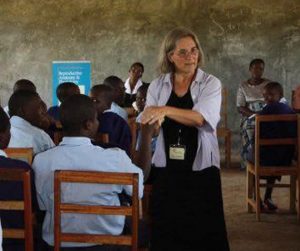
Sex education and HIV prevention is a growing part of African Childrens Haven’s (ACH) agenda. ACH finances a variety of education projects for children in Ethiopia, Tanzania and Kenya.
August 11, 2012 African Childrens Haven was recently named one of the top five “Children’s Education Non-Profits” by the personal finance search site, NerdWallet. Thanks NerdWallet! We appreciate it, but the credit rightly goes to our many African partners. They’re the ones doing the heavy lifting. “African Childrens Haven helps hundreds of poor children, especially those who have lost their parents to AIDS,” Ercole-Musso said. The organization also provides safe haven for girls seeking to escape childhood marriage, genital cutting and the sex and drug trades.ACH Ranked One of Top Five Education Programs for Kids

African Childrens Haven believes in supporting kids through local grassroots organizations. They invest in community projects that focus on education, but will also extend support to projects that improve the overall health and standing of children, especially orphans and children in extreme poverty. The hope is that community-based organizations are permanent fixtures because they are tied to the people and the region, and investing in them will therefore yield better long-term results. They are making a difference all over Eastern Africa by addressing the needs of orphans and the homeless, agricultural issues, environmental concerns, gender inequalities, and they do it all through a focus on education. African Childrens Haven provides education about these issues in addition to funding schools and providing the financial resources for individuals to go to school. In Tanzania they offer scholarships specifically for girls’ secondary education, and hope to expand these scholarships to allow girls to go on to college. Their work is helping the disadvantaged children in Africa from the ground up.
October 4, 2011 African PenPal Links Students in US and Kenya
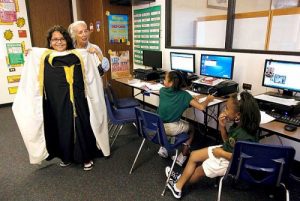 Students at Galveston Island’s Ambassador Preparatory Academy are learning about Africa in a new program that will help them communicate with children at a small school in East Africa. Since early September, fourth-graders at the 4-year-old charter school have been writing letters and preparing video materials for the students at St. Philip’s Primary School in Nairobi, Kenya.
Students at Galveston Island’s Ambassador Preparatory Academy are learning about Africa in a new program that will help them communicate with children at a small school in East Africa. Since early September, fourth-graders at the 4-year-old charter school have been writing letters and preparing video materials for the students at St. Philip’s Primary School in Nairobi, Kenya.
November 1, 2010 The friends and family of the late arts entrepreneur Carole Cole recently donated $1000 to the Carole Cole Science Scholarship Program, an initiative that helps orphan girls in Africa pursue secondary school studies in math and science. “The donation will support the education and board of a Tanzanian girl for a full year,” says Linda Ercole-Musso a close friend of Cole’s. Ercole-Musso chairs the board of African Children’s Haven, the organization that sponsors the scholarship program. Project leader Aichi Kitalyi notes that in its first year of operations all five scholarship recipients performed well in their studies, finishing at the top of their class. Carolyn Graves, Cole’s daughter, adds that “the program has kept her mother’s legacy vibrantly alive by promoting the education of disadvantaged girls in part of the world where science-based solutions to hunger and poverty are so urgently needed.”Cole Family and Friends Support Science Scholars
Galveston, Texas, September 22, 2010 Thanks to the Flamingos, a second group of girls will receive a Twirligirli gown in recognition of being selected for a secondary school science scholarship. “The idea is to make sure that the girls know that someone cares about them,” says Twirligirli founder Cathy Stovall. The gowns were donated in memory of Andrea Hufstedler Walker, the late daughter of Flamingo Bev Frannea. “Andy was an open-hearted person,” her mother says. “Her warmth and humor were constantly shared with a big hug and a bigger smile. She was dedicated to her four children, her husband and her extended family. And, that “family “included everyone she came in contact with including her neighbors, any child she encountered, and her many health care providers. Her love was inclusive, and helping others was her spiritual path. Her light will be missed by many.” Andy was born in the U.S. in 1965 but was a long-time resident of Costa Rica. She was described by those who knew her as an Twirligirli sponsors included Flamingos Bev Frannea, Maggie Fuller, Susan Lynch, Cherie Ray, Marilyn Schultz and Linda Ercole-Musso.Journaling Group Supports Orphan Science Scholars for a Second Year
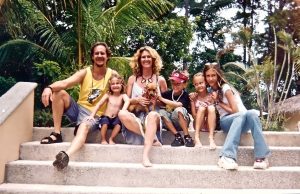
For a second year, a women’s journaling group, the Flamingos, is supporting orphan girls in Tanzania with a talent for science and math. “American by birth, Costa Rican by heart.” She is shown here with her family (photo left). On the right: last year’s science scholars with
“American by birth, Costa Rican by heart.” She is shown here with her family (photo left). On the right: last year’s science scholars with
their Twirligirli gowns.
Galveston, Texas, February 5, 2010 Five orphan girls with a high aptitude for science and math have received scholarships from African Childrens Haven to attend secondary school in Tanzania. It costs $1,000 per year to send a girl to secondary school. It’s a good investment, but one that’s largely out of reach for the majority of Tanzanian children. The Carole Cole Scholarship Program pays school fees and provides guidance from volunteer mentors drawn from Tanzania’s science community.Science Scholarships Awarded to African Orphans
Related News Articles
